What's in a Life?


Recently I had the opportunity to see the Chinese-American author Amy Tan speak at Ohio Dominican University. Which got me to thinking: what's in a life? She spoke about how she used to use Cliff Notes in college because she was taking something like 10 literature courses at one time. Hers was a buffet family that took what it could get. So it came as a surprise to find a number of Cliff Notes dedicated to the Joy Luck Club during one of her speaking engagements at a bookstore. The manual described in detail her life's story as well as the supposed hidden meanings behind her literary narrative. Set out like this, one's life becomes nothing more than a series of dates and names. Thus written such a biographical sketch is at a great remove from what we have come to know as our life. Our whole experience is gone, boiled down to mere anecdote. All the meaning and content that pervades our world is sucked out and freeze dried under the icy stare of a third eye. (The antidote to this reductionist slant would be the tact of Boswell's Life of Johnson, in which the reader is immersed in the meat and marrow of the protangonist's life.)
In this light, I have come to think of a recent biography done on St. Augustine and the assumptions behind it that have come to foist themselves upon us with increasing regularity. I will pass over the author of the work on St. Augustine, suffice it to say it is the most recent such attempt.
As it happens, the controversy surrounds Augustine the man and how he presents himself in his work. The most autobiographical of his works would of course be the Confessions. However this work ultimately forms just a part of the Saint's vast output. His work range from when he was a newly converted Neo-Platonizing Philosopher still in Italy on his way back to Africa. The younger Augustine is more of an intellectualist drawing from Cicero, and Plotinus for much of his thought. Later however his work reveals developments in the man himself in response to crisis and controversy. Including the Donatists and finally the Pelagians.
In this the Saint develops from a concern for the soul and God to a comprehension of the vast commmunion of Saints and the Church at large. Also his Neo-Platonism becomes increasingly tempered by an incarnational understanding of reality, in which the Sacraments play a key role in the mediation of God's grace.
Overall, St. Augustine represents one of the major bulwarks of Western Christianity in the way this synthesis is come about. Thus the concept of Original Sin, and the reality of sin and disordered love depicted in the City of God. It must be remembered that the Bishop of Hippo's work must be read not as a system part form itself but through the prism of the Magisterium.
Therefore Augustine's more extreme views concerning Free Will, Grace and Original Sin are tempered via what the Church has accepted from his teaching as authoritative. For example, the Church recognizes such concepts of a baptism of desire as well as Eastern Doctor's view of divinization versus the more Western concept of sanctification.
That being said, Augustine's controversy concerning the Pelagians is more complicated than is often portrayed in that his adversaries such as Julian assumed that all believers had to live a celibate life in order to gain salvation. The Pelagian ethic was eeriely close to the tenants of a gentleman of late Anitiquity and was elitist at heart. Obviousy Augustine held to the sanctity of marriage as well as the celibate state in the life of a christian.
His assertion of the presence of concupiscence even within the conjugal act is not as negative a view as is often asserted. True, there is an underlying tendency toward the demonization of sex and sexuality within the West which propenents of the Sexual Revolution reacted against. But such a reaction has often been to our peril as sex is separated from any instrinsic value. it may have beyond self-gratification. However if one is realistic it cannot be denied that even within marriage sex need not be without sin since partners can act selfishly in this area as well as in other areas in their life.
Modern revisionism tends to lean on what many have called the hermeneutics of suspicion championed by Marx, Freud, Nietzsche et al. In this context the account that someone, say St. Augustine, gives of his life is seen purely in manipulative terms reducing his motives to the basest possible ones. In this reading St. Augustine's Confessions are a provocative display of personal baggage meant to enhance the writer's position within the North African Church in which he was a minority as a Catholic Bishop. Since most Christians in North Africa belonged to the Donatist sect at this time, it is thought Augustine used this piece to rally support for his cause which he eventually was able to accomplish in the Emperor's action against the Donatist's later in his life which liquidated their possessions in favor of the Catholic party.
To this end, the author of the biography dissects the Confessions as a self-aggrandizing enterprise in which St. Augustine purposely misrepresents the events of his own life.
We are told to resist the siren all of the Saint's rhetoric and line of argument. He was a teacher of rhetoric after all. So to get to the truth we must reconstruct half-hints and allusions within the Saint's own writings.
Of course upon reading St. Augustine one could not for a moment believe he was unaquainted with Classical Learning including Rhetoric. This much is obvious. Yet beyond the form there is the message he alludes to, the Deposit of Faith left by Christ ot His Church. That Augustine was zealous for his party is evident, and is not to be doubted. That he had more charity than many, especially the Donatists, which were along the line of Puritans, is revealing however. Can a priest who is in mortal sin say a valid mass? Yes. Is unity in doctrine and belief important to the Church? Most definitely.
Herein we see the emerging Western Church which the biographer is highly critical of as a whole. Not to mention the oft-hated Augustinian concept of Original Sin, or the state of incurvatus, the turning away from God. Such developments beg the question, does the biographer's own method of suspicion hold up to scrutiny?
Firstly, whenever we read a text, especially a narrative in the case of the Confessions, we naturally give assent to the narrator's assertions. We have an implicit trust, a confianza in the validity of what the narrator is telling us. To bracket such a text in a priori doubt fundamentally changes the nature of the text itself. Such a posture owes much to the Cartesian method of radical doubt so as to eliminate all falsehood in the search of truth. Ironically, St. Augustine, as many scholars, was already in position of the Descartes' cogito, the fact that human intellect is reflective that I know that I think and so in some sense I must trust the fact that I exist. However he does not isolate this cogito from all the other mental operations in an artificial manner which is the characteristic of Modern Idealism.
If one were to follow the biographer's own method of suspicion or desconfianza, and cast a jaundiced eye on his own argument one comes to one main conclusion. The author is attempting to discredit many of the bulwarks of the Church, of which Augustine is representative such as the Hierarchical Structure, the Sacraments as vehicles of God's grace and a sign of Eccesial Communion, as well as Original Sin.
Also one must keep in mind the role of tradition in the reading of Augustine's work and how it is read not just by the lone skeptic but how it is read and received in the community of Faith across the centuries.
While an expert in Latin and possessing an intimate knowledge of Augustine's corpus the author seems to miss the boat on Augustine the man. As an historian the biographer is highly competent in the World in which Augustine lived (i.e. the Mediterranean in Late Anitquity). However on matters of theology, he is gravely amiss.
The importance of the Confessions lies not so much in the accurate depiction of historical events for a history textbook but the inner journey of Augustine the man toward God. That he makes use of his classical training in the reconstruction of the episodes into a moving narrative does not take value away from the text. The message remains as true then as now.
Nietzsche laughed at the Pear story as an episode of infantile moridity. Oh no, he stole some pears when he was a boy! Wow that Augustine was a wussy. Yet Augustine says that it was not so much that he stole the pears but that he sole them because he knew it was wrong. So in his conscience he knew what he was thinking of doing was wrong and that was the reason he did it. Just take a look around at the plague of infantile rebellion around us, both real and manufactured. "Whatever, I do what I want!" This was one of the problems with the Mosaic Law and all laws for that matter that since something is forbidden we naturally want to do it.
With the help of Divine Grace we can will to do what is good. Only in this context can the injunction: Love and do what you will, have any meaning at all. If the person is right with God and is in a state of grace then that the person will naturally love that which is good, and therefore what they will, will be good also.

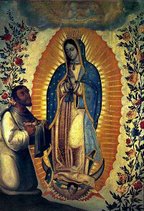
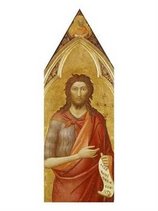


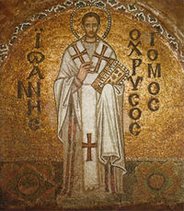
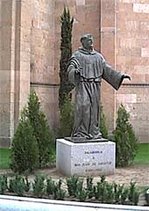

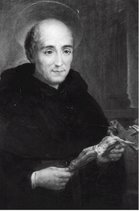
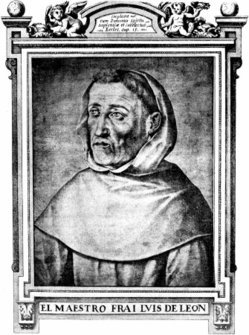




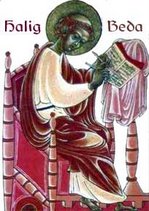
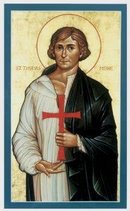
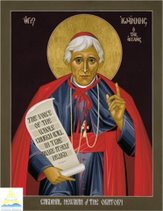




No comments:
Post a Comment